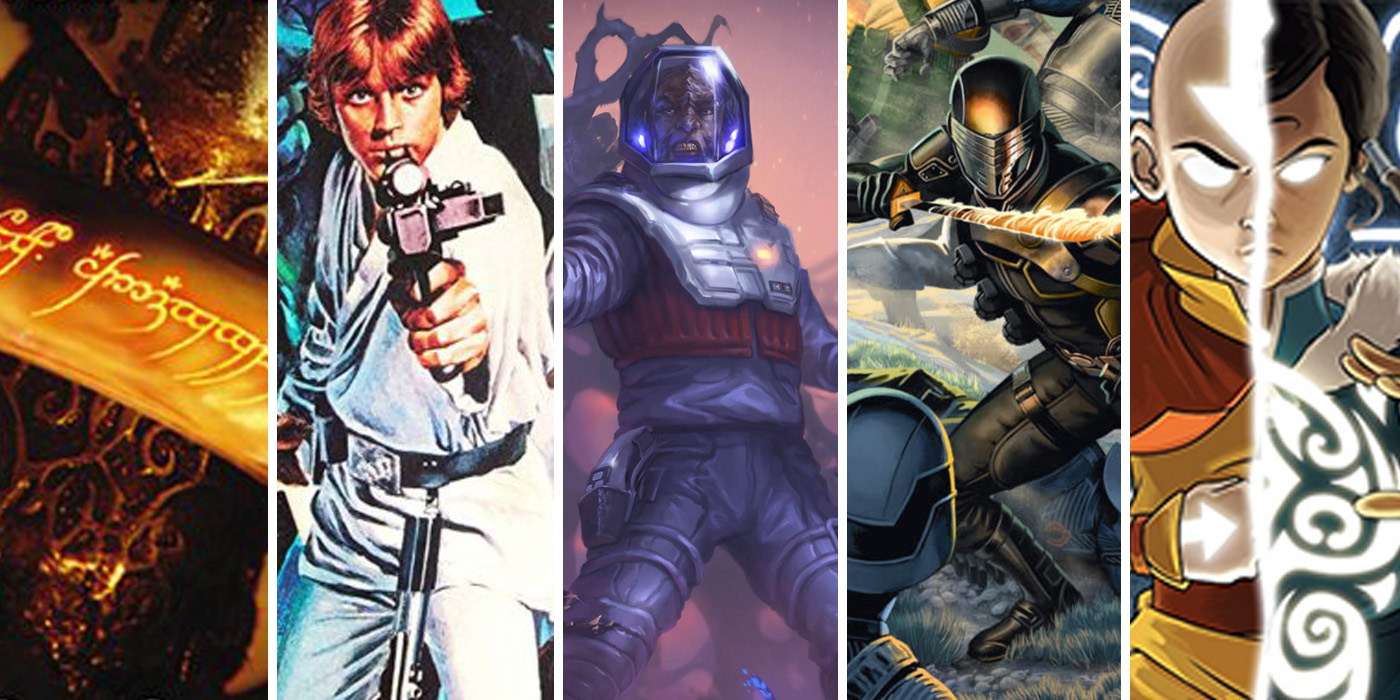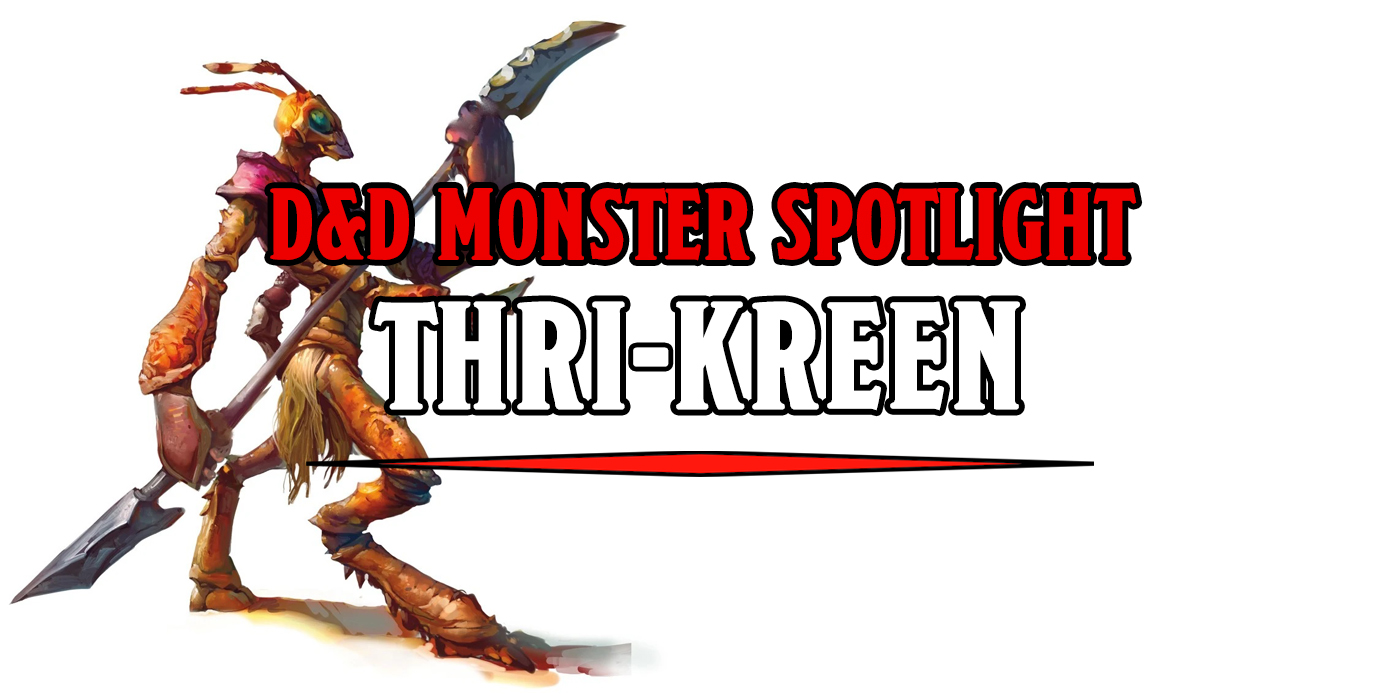Licensed RPGs are Good, Probably


Licensed RPGs are big right now, and they’re both good and bad. But licenses open up the hobby to more people than we might otherwise reach.
Licensed RPGs are almost as old as the hobby itself. Some of the licensed properties that have been turned into RPGs are a bit of a head-scratcher. Need some examples? Check out Dallas: The Television RPG and (the excellent) Street Fighter: the Storytelling Game. Others make a lot of sense given what was popular at the time, such as Palladium’s Robotech and Teenage Mutant Ninja Turtles & Other Strangeness role-playing games.
A Tale of Two Licenses
Actually, let’s talk a little bit about those last two since they are great examples of two ends of the licensing quality spectrum. Robotech the RPG hit shelves in 1986, just after the broadcast run of the eponymous TV show. The Robotech animation was all about giant transforming robots, space battles, character-driven drama, and romance. But the RPG failed to capture all but a fraction of those elements. The example of play is a fairly run-of-the-mill mugging scenario completely divorced from robots, space battles, and the rest. While the RPG has some admittedly exciting artwork, it contains only the briefest mention of the show’s complex narrative and engaging characters.
And now, for Teenage Mutant Ninja Turtles and Other Strangeness, the RPG. Published one year earlier in 1985, this is a fantastic example of an RPG that manages to capture the energy and passion of the license it is based on. TMNT the RPG is based on the comic books by Eastman & Laird published around the same time… it is not related to the 1984 cartoon or any of the later works.
However, the RPG itself is focused on the right things; you take on the roles of a band of mutant animal heroes fighting to survive and thrive in an exciting world full of strangeness (as promised on the cover). Eastman & Laird even provided a short black and white comic just for this book! There’s love and appreciation for the license dripping on every page, and the system to create your own mutant animal hero is (for its time) quite engrossing.
You may note that both of these example RPGs were published by the same company: Palladium Books. This is one reason why I like to use both games as examples since they’re both from the same studio. No matter how savvy a group of creators might be, they may come up with a licensed game that could be the best… or could be reviled years later by the target audience.
The Good & Bad of Licensed RPGs
I definitely have a little bit of experience in dealing with licensed games. I’ve personally worked on properties for Star Wars, The Lord of The Rings, Warhammer 40,000, and several others. Licensed RPGs are, one could say, one of my specialties, so I’ve had a lot of time to think about how they function in the industry.
So what is the key to a good licensed RPG vs. a bad one? I’d argue that an RPG that concentrates on providing the core thematic experience of the license is off to a great start… if the game understands what made the license so good to begin with, it’s on the right track. Secondly, I’d say that a licensed RPG should be able to offer me the chance to take on the role of the heroes of that license. Third, I’d suggest that a licensed RPG should make good use of its franchise. It should have plenty of good art, references to the main themes and tropes of the license, and a good-faith effort to provide fans of the licensed property something to enjoy while being approachable for people who are not quite yet superfans. In my opinion, the Star Trek Adventures RPG line from Modiphius is an absolute gold standard when it comes to representing all of these aspects.
If you really think about it, roleplaying games are one of the deepest dives you can take into a licensed property. You’re literally taking on the role of a person inside the world of that license, primed and ready to experience everything the license has to offer and interact with the characters, storylines, villains, and themes that drew you to the license in the first place. When it comes to licenses that people absolutely love — a good example is Avatar: The Last Airbender — the RPG presents a unique opportunity to deepen one’s appreciation for what the license brings to the table.
Licensed RPGs Have Developed Some of the World’s Greatest IPs
Other big licenses have benefited greatly from the wealth of worldbuilding, lore, and development that a tabletop RPG offers. One of the biggest licensed games was West End Games’ Star Wars D6 line. According to Bill Slavicsek, most of what we know about Star Wars lore started there, creating the foundation for a blockbuster IP.
Currently, of course, licensed RPGs are big. They’re not quite dominating the industry (D&D is still on top by a comfortable lead), but they’re making big splashes. A couple of recent examples include the Avatar Legends RPG, and several games from Renegade Game Studios like GI JOE and Transformers.
I can already hear several of you out there shrugging your shoulders. “So what if there’s a lot of licensed games?” You might say. “What’s wrong with that?” My answer is short and simple: nothing… yet.
We Should Support Licensed RPGs, but Only the Deserving Ones
Licensed games can be quite good for our hobby. They spark opportunities for new designers and fresh approaches to role-playing. They can bring in interest from groups who are normally outside of the RPG space. Licensed RPGs can build the hobby.
However, it is important to vote with your wallet. We’re already seeing what happens when beloved franchises are handled by cash-grabbing executives in the video game industry. If the RPG industry gives us good licensed games, not just good licenses, we should reward them. If they give us phoned-in crap, we should walk away.
This also goes true for the license-holder as well. Some licensors have been bad actors — Harmony Gold is one that comes to mind. But all you have to do is look at Green Ronin’s DC Adventures for a prime look at a bad licensor. Warner Brothers rebooted the entire DC universe within just a few months of the RPG’s release. This instantly rendered the universe it took place in almost entirely moot. As a result, DC Adventures never grew beyond a handful of expansions from the core book.
At the end of the day, I think that licensed RPGs offer us something special. And if the publisher and/or the licensor don’t screw it up we should support that.





